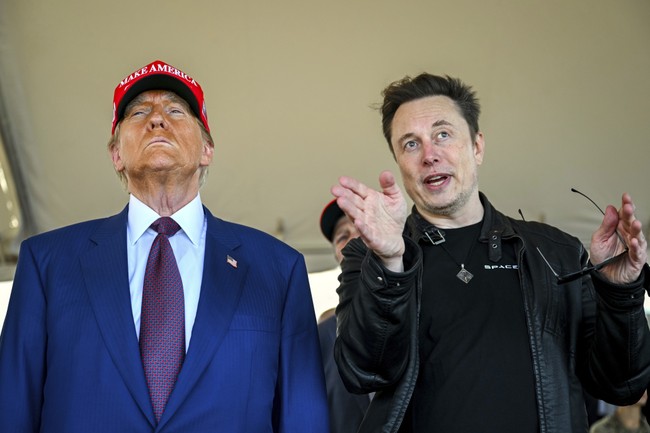Trump's Economic Moves Stir Market Reactions
As President Trump considers a national economic emergency, the stock market reacts with mixed signals. Investors assess the implications of potential tariff measures.
Published January 11, 2025 - 00:01am

Image recovered from devdiscourse.com
Recent developments in the U.S. political landscape have cast a shadow over the global financial markets. President-elect Donald Trump's contemplation of declaring a national economic emergency to implement new tariffs has created a cloud of uncertainty among investors and industry stakeholders.
The ability to enact an economic emergency declaration, as reported by CNN, hinges on the International Economic Emergency Powers Act. This act permits the President to impose tariffs and manage imports during periods of declared national emergency. Such measures could have far-reaching implications, with the potential to alter trade dynamics significantly and affect global markets.
In Hong Kong, the Hang Seng Index Futures experienced a loss of 155 points in response to the news. Simultaneously, the U.S. stock futures followed suit, with Dow E-minis dropping 119 points and S&P 500 E-minis declining by 26.25 points. The bearish sentiment was compounded by an increase in Treasury yields, which apply additional pressure on equities perceived as riskier investments.
While this uncertainty disrupts the stock market, it also attracts heightened attention to underlying economic vulnerabilities. The discussion surrounding President Trump's potential tariff strategies brings to light the complexities of balancing national economic protectionism with global trade commitments.
Despite the unease, the technology sector has partially mitigated the anxieties surrounding economic policies. Firms like Microsoft continue to inject positive sentiment into the market by announcing substantial investments, such as their recent $80 billion pledge towards AI data center development. This investment not only signals confidence in future innovation but also serves as a counterbalance to the trade-related apprehensions.
U.S. automakers like Ford and General Motors have also found themselves in a favorable position, thanks to speculative talks about a strategic, less damaging approach to tariffs that could preserve sectors critical to national security. Such speculations have offered a reprieve as investors attempt to anticipate the administration's final policy decisions.
Nevertheless, the prospect of a trade war looms large. Global trade partners have expressed concerns that extensive U.S. tariffs, compounded by rhetoric surrounding mass deportations, could lead to retaliatory measures. This scenario could stoke inflationary pressures worldwide and disrupt supply chains across multiple industries.
Both locally and internationally, market participants remain on edge, closely monitoring every piece of news related to the policy directions of the incoming Trump administration. Economic analysts are keenly evaluating the potential impacts on inflation, interest rates, and overall market liquidity, which could influence future investments and economic stability.
Ultimately, as markets navigate this challenging terrain, the focus remains on how policy announcements and economic indicators will shape investor sentiment in the coming weeks. Each decision by the incoming administration will guide the financial climate's trajectory and determine whether optimism or caution prevails among the global investing community.







